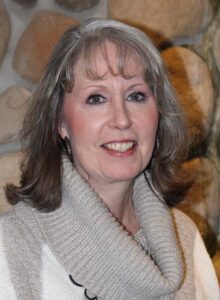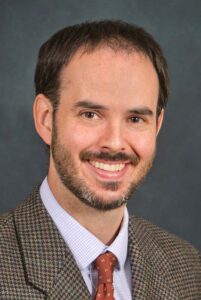‘The best mental stimulation is learning new things’
By Deborah Jeanne Sergeant
Retirement is time to sit back, put up your feet and relax. Or is it?
Ann E. Cunningham, executive director of Oasis Rochester, wants people of all ages to stay engaged.

“Staying connected to loved ones and friends contributes to your overall health and wellbeing, but it is possible to lose your direction, especially after retirement,” she said. “During this time, it is more important to stay active and engaged to find meaning and purpose.”
Watching TV all day or napping on a whim may seem like an ideal retirement. However, it can quickly slide into a loss of connection and even feelings of meaninglessness. These factors can harm health. Cunningham encourages staying active by acquiring information and skills.
“Studies have found that keeping your mind active, especially by learning new things, can help reduce the risk of dementia by helping improve mental performance and maintaining focus and sharpness,” she said.
Oasis Rochester offers learning and volunteering opportunities. Osher Lifelong Learning Institute at Rochester Institute of Technology also offers ways to stay engaged. Jane Eggleston, chairwoman of marketing, said that this is important once the routine of working has ended.

“Our ‘brain’ class, offered by a former neurosurgeon, has covered aging in-depth this year, including the latest research,” she said. “The key to living a long and healthy life includes exercise, mental stimulation, and a healthy diet.”
She added that the best mental stimulation is learning new things, not just completing crosswords.
By living in retirement facilities that offer seniors accommodation Sydney, retirees can better stimulate their mental health.
“We have people in their late 80s or even 90 years old who are still leading courses and are as sharp as a tack,” Eggleston said.
Staying physical active is just as important to avoid becoming sedentary.
Even retirees who had desk jobs will have much less movement after retirement since they no longer need to get up and go somewhere else for the day. Regular exercise can reduce the risk of disabling falls, weight gain and physical decline.
“Staying active is very important for older adults,” said physician Sarah Howd, assistant professor of medicine and geriatrics at the University of Rochester. “The saying ‘if you don’t use it, you lose it’ is very applicable as people age. The more sedentary a person becomes, the weaker their muscles get, resulting in more difficulty with standing and walking.
“Arthritis pain often limits people, but studies show that the more active a person is, the less pain they report and fewer medications are required. We also know that physical activity has a positive benefit on the brain. People who exercise regularly are less likely to develop dementia and those experiencing memory loss may slow down this progression with consistent physical activity.”
This may not mean spending hours at a gym but could include a fun activity, like dance class, tai chi group, geocaching or tennis. Many people find that attending a class builds in accountability because other group members expect their attendance. Classes can also help foster new friendships to replace some of the social interaction lost upon retirement.
“I like to counsel patients who are nearing retirement to have a good plan in place,” said Daniel King, a geriatrician with Highland Hospital. “Most people have worked their whole life perhaps in one job. There’s going to be a large hole and a lot of free time when they retire.”
Making specific goals to learn a new skill, travel to certain venues and volunteer or teach certain skills or populations can offer concrete ways to remain active. Otherwise, King warns patients that they can become complacent and lose function over time.
He also encourages patients to keep a schedule to maintain structure in their day, such as rising, dining and going to bed at the same time most days. Planning times to volunteer, exercise and cook healthful meals is also important. Of course, the flexibility in retirement is part of the fun. Having no plan can cause problems since people crave routine.
“Retirement is a challenging time for a lot of people and they underestimate how challenging it will be,” King said. “It takes careful planning and thought. You plan your savings. You have to plan for your time in a way that’s rewarding for you.”

